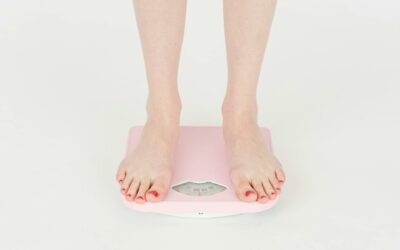If you’ve taken a CompID Scan with DEXA technology before, you know there’s no need to abide by any specific fasting or hydration conditions prior to a scan. But there’s a rumor going around. It has been found that being overly hydrated drives up lean mass data on scans, leaving many with a false assumption that lean mass has increased. Naturally, our hybrid team of nerd-athletes put it to the test.
Hydration & Health
Hydration is incredibly important for maintaining a healthy, active lifestyle. Drinking enough water allows the body to perform optimally, helping with nutrient transport, cellular function, thermal regulation, and waste removal. It can also play a key role in metabolism and body composition. Being dehydrated over time can slow the body’s metabolism and restrict the body from burning fat as fuel. Water is required for adequate blood flow in skeletal muscles during exercise, helps aid in recovery, and is important for muscle development.
The Lean Mass Hypothesis
There are a number of research studies that examine how hydration relates to the relationship between lean mass and body fat. Our team was curious how lean mass data calibrated from DEXA technology is affected by water consumption – and why these numbers change. It’s been said that different states of hydration can result in differences in body composition data, which can lead to an over or underestimating of lean body mass.
1-Gallon Test
Taking the notion that being overly hydrated prior to a scan may result in higher lean mass and lower body fat percent, members of our DC team, Mitch August and Audrey Djedjes, put it to the test. They posed the hypothesis that drinking 1 gallon of water would increase lean mass measurements from DEXA data.
“I read about water having a significant impact on lean mass in the past so I hypothesized that my lean mass would go up but no more than 6 pounds,” says August. “Figuring that a gallon of water weighs about 8.3 pounds, my understanding was that some of the water would be absorbed/metabolized and the results would not directly increase 8.3 pounds of lean mass.”
August first performed a CompID Scan using DEXA technology with a completely empty bladder, then consumed 1 gallon of water in under 2 hours and scanned himself again after finishing the gallon – with a full bladder (ouch).
Mitch’s Results
Total Mass
Scan 1: 186.5 lbs
Scan 2: 193.4 lbs
Difference: +6.9 lbs
Fat Mass
Scan 1: 26.2 lbs
Scan 2: 25.9 lbs
Difference: -0.3 lbs
Lean Mass
Scan 1: 152.5 lbs
Scan 2: 159.7 lbs
Difference: +7.2 lbs
Percent Fat (Scan 1 vs Scan 2)
Total %: 14.0 – 13.4 = -0.6
Arm %: 11.2 – 11 = -0.2
Leg %: 16.2 – 15.7 = -0.5
Trunk %: 12.6 – 11.7 = -0.9
Android %: 11.7 – 11.5 = -0.2
Gynoid %: 13.3 – 13.3 = 0.0
Audrey’s Results
Total Mass
Scan 1: 149.9 lbs
Scan 2: 155.2 lbs
Fat Mass
Scan 1: 44.2 lbs
Scan 2: 43.9 lbs
Lean Mass
Scan 1: 100 lbs
Scan 2: 105.5 lbs
Percent Fat (Scan 1 vs Scan 2)
Total %: 29.5 – 28.3 = -1.2
Arm %: 31.5 – 30.3 = -1.2
Leg %: 33.4 – 33.7 = +0.3
Trunk %: 27 – 24.6 = -2.4
Android %: 25.5 – 23.5 = -2.0
Gynoid %: 37.7 – 36.4 = -1.3
So, What Happened Here?
At first glance, both August’s and Djedjes’ lean mass increased and body fat decreased, but does this actually mean they gained lean muscle mass? Not so fast. By just looking at the numbers along, one might assume they both gained a significant amount of lean muscle between Scan 1 and 2, when really the only variable that changed was water volume in the body. However, when analyzing DEXA technology data, it’s important to understand what “lean mass” is truly calibrating, and how this affects the ratio of body fat percent.
August explains: “Since bone and fat tissue both fall within a tight window of density, DEXA is calibrated to pick up those compositions more directly, leaving lean mass to have a wider variance. All other essential components aside from bone and fat like organs, tendons, ligaments, blood, water, and muscle mass fall into the category of lean mass. This is why being over hydrated or under hydrated can affect the perception of losing or gaining lean.”
As for the falling body fat percent ratios in Scan 2, it makes sense that if lean mass increases, body fat percent falls slightly, even as total body mass increases. The most significant regional change in data between Scan 1 and Scan 2 is August’s Left Trunk Lean Mass – which, you guessed it – is where the stomach is located, and where a majority of water was being stored at the time of Scan 2.
Left trunk lean mass
Scan 1: 34.6 lbs
Scan 2: 39.1 lbs
Difference: +4.5 lbs
Our Thoughts
Given the team’s results, you may still be wary of how much or little you drink before your next scan. It’s very likely that both August’s and Djedjes’ lean mass stabilized once their bodies flushed most of the water they consumed.
In order to reliably monitor body composition changes from scan to scan – and remain healthy overall – we suggest staying consistently hydrated every day. Unless you plan to drink a gallon of water before your next scan, your level of hydration shouldn’t vastly impact your data.
See for yourself! Schedule a CompID Scan at a location near you, or talk to our nutrition coaches for more information.



